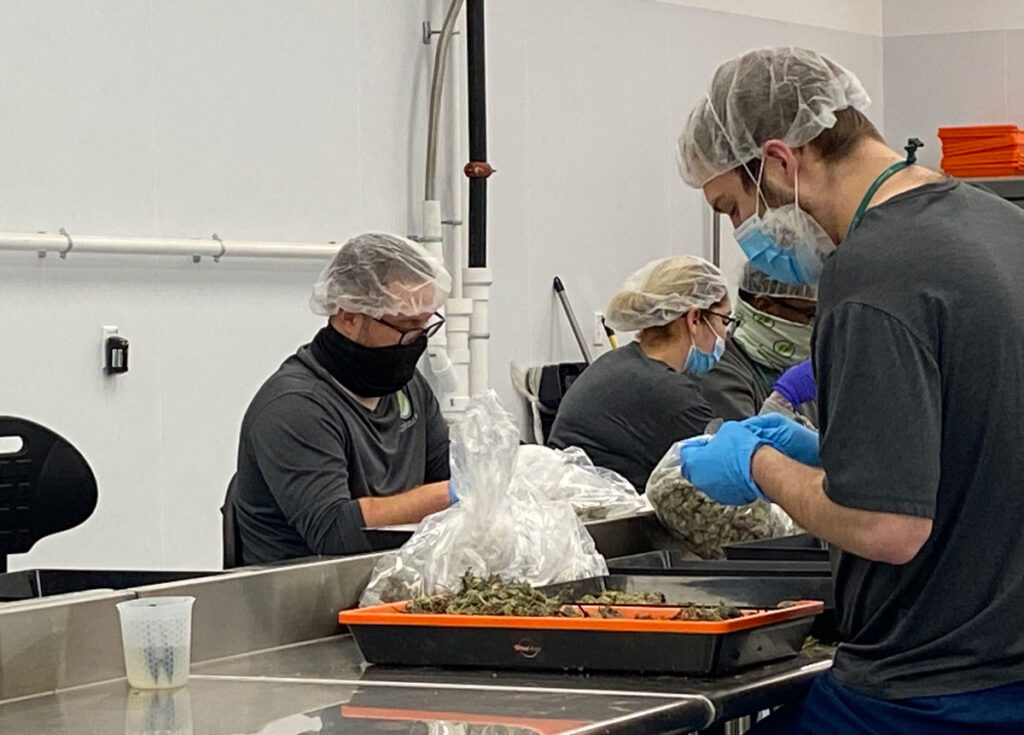The legislature created a new cannabis ombudsman this past session to protect the needs of medical marijuana users, but it could be months before the new position is filled.
Medical marijuana users have said they’re finding it harder to find some products since Connecticut’s recreational market opened in January, so lawmakers added the position into a broader package of changes to cannabis laws.
In the meantime, Healthcare Advocate Ted Doolittle, whose office will host the new ombudsman, said he is working with lawmakers to further define the role before posting a job description.
“Without making any particular predictions, I would be pretty happy if this was filled in the first quarter of 2024,” he said.
The cannabis ombudsman will monitor local, state and federal laws around medical marijuana, including investigating complaints from patients.
Dollittle said his office’s focus has been the health insurance industry, looking into complaints when people feel their claim was wrongly denied.
“It is going to be a new endeavor for OHA,” he said.
House Majority Leader Jason Rojas, D-East Hartford, said the office seemed like a good fit, though, because the name implies advocacy and the position should be independent of the Department of Consumer Protection.
One of the ombudsman’s primary roles will be as an independent voice whenever DCP actions and regulations over the cannabis industry harm medical marijuana users.
“My hope is that the ombudsman will feel empowered to be able to go directly to the agency and bring concerns to them,” he said.
Rojas said lawmakers created the position after hearing concerns from patients.
“I never really thought about it but as the legal market took hold, what are the implications for medical marijuana consumers,” he said.
Doolittle said some of the logistical issues include figuring out how much money is budgeted for the position and how the position will be classified.
Connecticut has had ombudsmen in the past, including one for longterm care, but the position is not one commonly found in state government. In fact, Doolittle noted, OHA was previously called the Office of Managed Care Ombudsman.
Doolittle said misclassifying the position could limit the ombudsman’s ability to do the job.
He also said he’ll likely need to work with the legislature, advocates and experts to determine what qualifications he wants in an ombudsman, and what functions will come with the job.
“I’m not a cannabis issue expert and we don’t have anybody on staff who is, so it’s going to take a little bit for us to figure out what the functions that are envisioned are,” he said.
It may take time to create the position, but Doolittle agrees OHA is likely the right place for it. He said his staff is still “an ombudsman-type office” even after the name change.
“That’s what we do, I mean, we represent patients and help them work out problems,” he said. “It’s not a bad office to have it in. I can’t think of a better fit office.”
The office was included in a new law that otherwise cracks down the sale of synthetic THC and high-potency products sold by unlicensed retailers.
CBD stores are restricted to selling edible products with no more than 1 milligram per serving and no more than 5 milligrams per package. Different THC limits apply to tinctures and lotions but in each case, the new limits fall well below products available in regulated dispensaries.
The law also requires labeling that clearly identifies what’s inside, a response to products whose names are based on candy, cereals and other snacks.
H/T: CTNewsJunkie.com
You can view the whole article at this link Cannabis Ombudsman Search Underway Amid Supply Concerns



